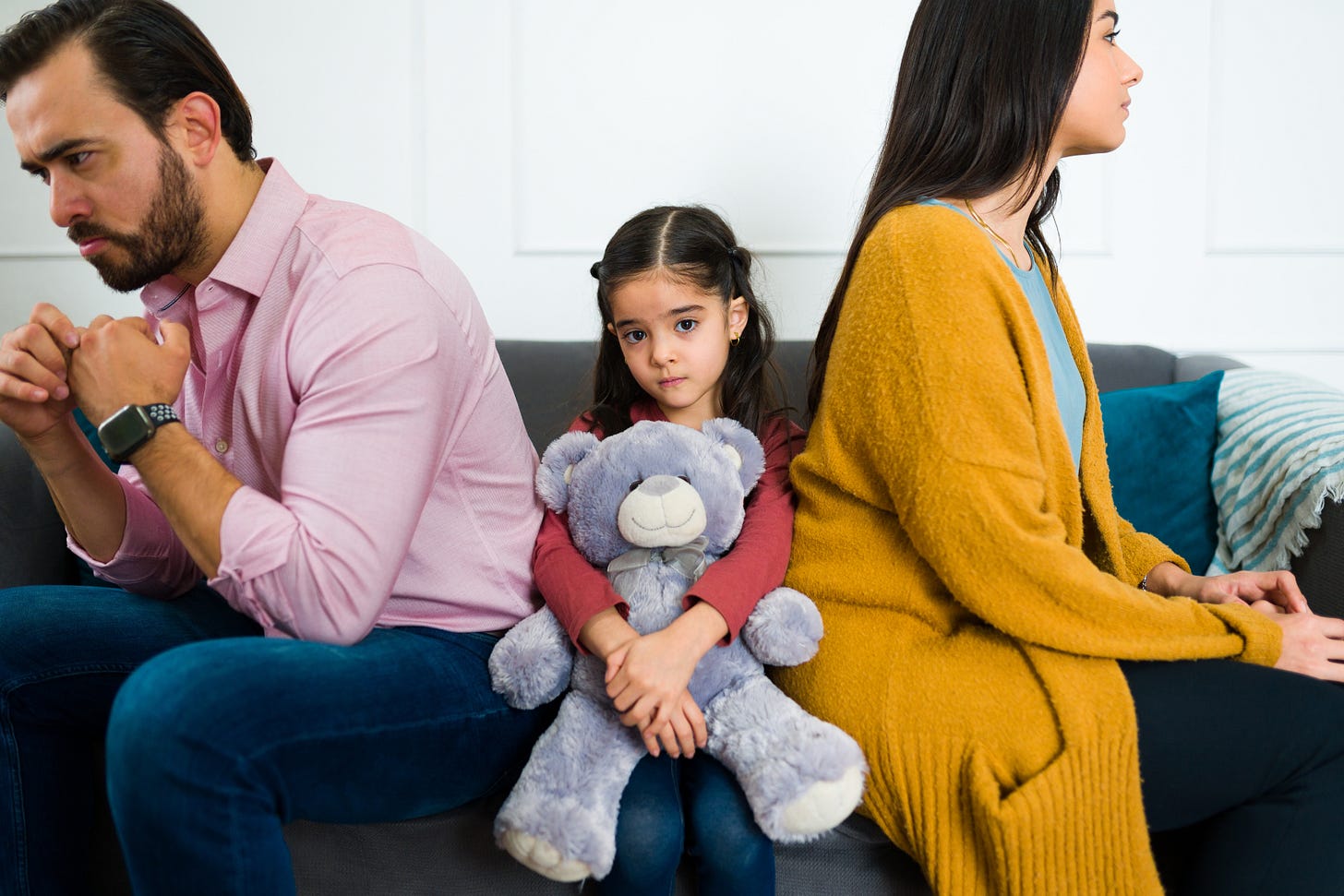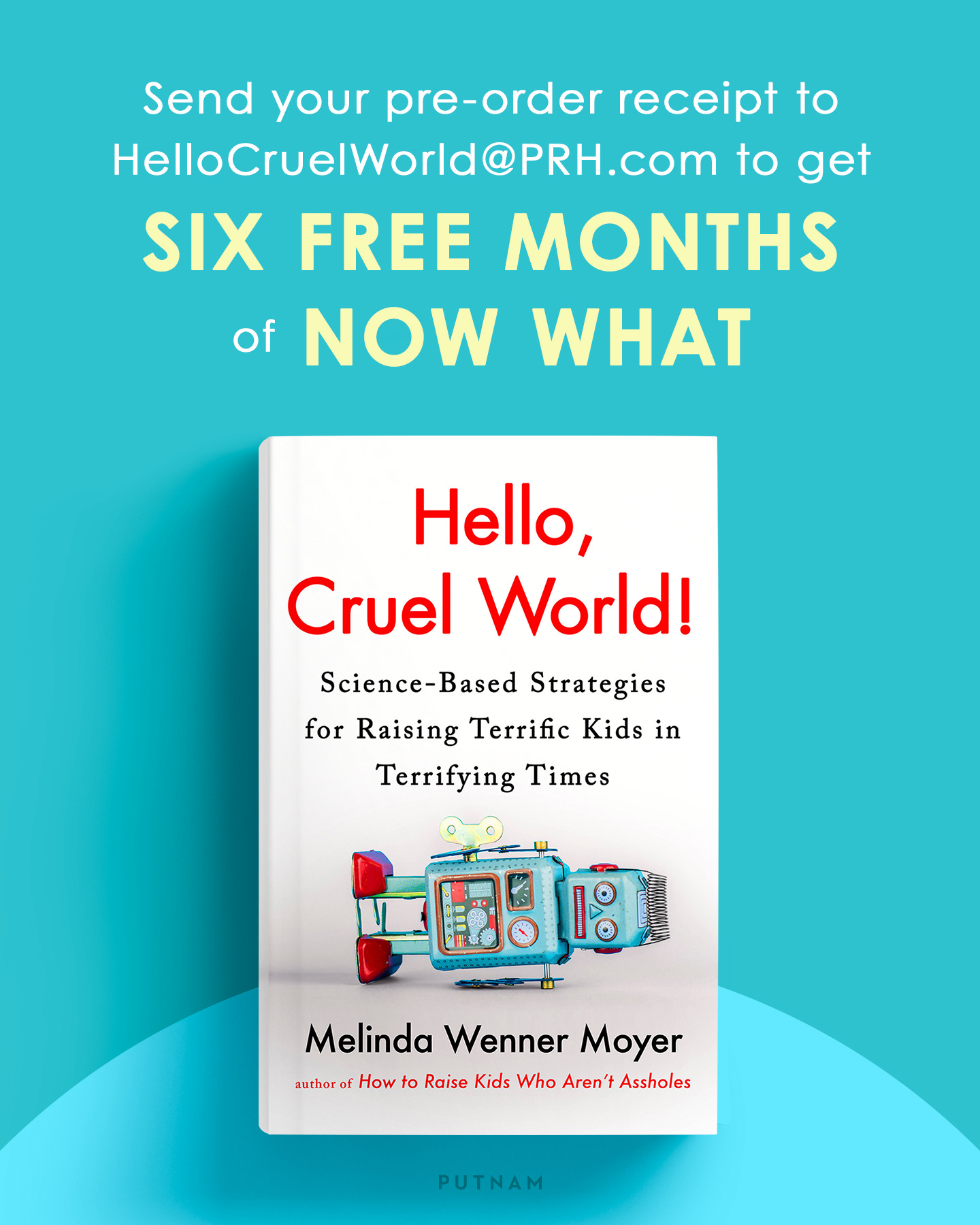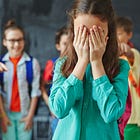It Can Be Good to Fight in Front of Your Kids
But some kinds of conflict are better than others.
Parenting advice is often characterized by broad, sweeping claims about what’s helpful and harmful for kids. One bit of largely accepted wisdom is that parents should “never fight in front of the kids.” Setting aside how impossible this is — you can’t raise kids without ever disagreeing with your partner, can you? — I’m happy to report that research also suggests that this is not true. And it’s not just that certain kids of parental conflict aren’t harmful; it’s that parental conflict can be actively helpful for kids to observe.
Of course, of course, the details matter. It’s certainly not good for kids to regularly see people engaging in harmful, destructive conflict, like when parents yell at each other, use obscenities or insults, are physically violent or display intense forms of angry withdrawal, such as storming off and leaving the house. These are all things we do not want to be doing in front of kids if we can help it. (But if it happens from time to time, that’s okay. That’s life. I’d suggest trying to talk to your kids about it afterwards, once everyone is calm, and explaining what happened as neutrally as possible.)
But research suggests that when kids observe their parents engaging in constructive conflict — conflict characterized by problem solving, cooperation, validation, and progress in resolving the dispute — they actually end up more mentally healthy, more emotionally literate, and better able to resolve conflict in their own lives compared with kids who don’t observe this kind of conflict.
For decades, research has shown that kids who observe parents engaging in constructive conflict fare well. But it’s been unclear why and how these experiences might be helpful. To find out, researchers at the University of Rochester and Auburn University recently conducted a longitudinal study that was published in late February in Developmental Psychology.
The researchers invited 238 preschoolers and their mothers into the lab. The moms were interviewed by the researchers about the kind of parental conflict their kids observed at home and how frequently they were exposed to it. The more parents tried, while fighting, to understand their partner’s perspective, demonstrate empathy toward each other, and come to a mutually agreed-upon solution, the more “constructive” their conflict was considered to be. Disagreements that were characterized by yelling, insults, physical violence or angry withdrawal were deemed more destructive.
During that first visit to the lab, and then during a second visit a year later, the researchers also assessed how well the preschoolers could predict other people’s emotions based on situational clues seen in videos. For instance, the kids would watch a video of a girl complimenting another girl and then the researchers would ask them how that girl likely felt after receiving the compliment. The researchers also assessed how well the kids solved social problems by asking them what they and others would do in various situations.
They also asked the kids’ teachers, both at the beginning of the study and two years later, to rate how well the kids communicated with others, how much concern and support they showed for others, how well they cooperated, and how strong their friendships were. The teachers were also asked to report how much the children acted out and interrupted others, and how anxious, depressed, and socially withdrawn they seemed.
The researchers found that kids who were exposed to more constructive parental conflict learned more about emotions and developed stronger social problem-solving skills over time than kids who were not exposed to as much constructive conflict. Kids who had amassed greater emotion knowledge were then less likely to exhibit symptoms of anxiety, depression, and social withdrawal.
Why might watching constructive arguments be helpful for kids? We know that children learn a lot, socially, by watching others. When children see their parents modeling healthy conflict behaviors — being supportive, listening well, staying calm, and solving problems — they likely learn important emotional and social skills. They may better learn to recognize different feelings, understand others’ points of view, and problem solve.
We also know kids are especially likely to copy behaviors when they see that they lead to good results. Over time, they may adopt these healthy conflict behaviors as their own way of handling emotions and relationships.
Once kids learn how to understand emotions and manage social problems in positive ways, they may then fare better socially, emotionally, and behaviorally. When kids can correctly identify how others are feeling based on the situation, they’re more likely to act with empathy and handle social interactions well. This can lead to stronger relationships and fewer behavior problems. Being able to understand others’ feelings can also reduce the risk that kids will their focus inward and get stuck on negative thoughts.
As the researchers wrote in the study, “the ability to generate constructive solutions to peer challenges may provide children with a proximal knowledge base for enacting effective communicative, empathetic, assertive, and prosocial behaviors that strengthen their peer bonds.”
For me, the take-home from this study is that we shouldn’t stress about fighting in front of our kids. In fact, we should feel very comfortable doing it — as long as we disagree respectfully and thoughtfully. Conflict is something our kids will encounter throughout their lives, and by watching us manage our own disagreements in healthy ways, our kids will develop skills they’ll benefit from for the rest of their lives.
What are your thoughts? Share in the comments!







Yes to this cool research and this incredibly important message! Our kids WILL fight with others so we want to model for them how to do so constructively and respectfully. Also, when we goof and do it badly, that’s an opportunity to teach them what one does after a mistake has been made: take responsibility, make amends, forgive, try to do better the next time! Advice not to fight in front of kids is so frustrating, thank you for this message and for sharing this cool research!
"We also know kids are especially likely to copy behaviors when they see that they lead to good results."
This is such a simple and yet profound reminder.